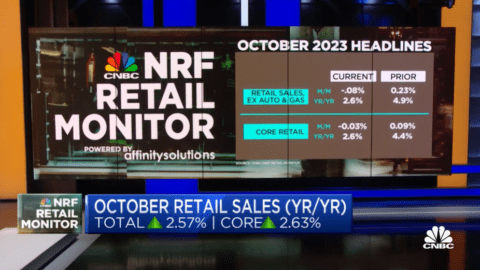A federal judge for the U.S. District Court for the Eastern District of Texas has struck down the U.S. Department of Labor’s (DOL) April 2024 rule aimed at expanding the scope of overtime pay eligibility. The National Retail Federation (NRF) lauded the move, with the trade association’s EVP of Government Relations David French saying in a statement that the rule would have “curtailed retailers’ ability to offer the most flexible, generous and tailored benefits packages to lower-level exempt employees across the industry.”
The Fair Labor Standards Act requires employers to pay employees overtime when they work more than 40 hours in a week, but exempts some executive, administrative and professional (EAP) workers. To be considered exempt, workers must be salaried; their work must fit EAP duties; and they need to earn a minimum salary. The DOL’s 2024 rule — which marks the agency’s second attempt to change overtime eligibility — would have increased the minimum salary for an employee to be considered exempt from overtime requirements from $35,568 to $43,888, effective July 1, 2024, and raised it to $58,656 on Jan. 1, 2025.
A study by Oxford Economics, commissioned by the NRF, found that the rule could have impacted as many as 7.2 million U.S. workers and would have come at a significant cost to U.S. employers. “NRF opposed these rules from the outset,” said French. “They would have forced employers to reexamine compensation packages for millions of workers nationwide. Had the rule taken effect, some workers would have lost the status of a managerial position, valuable educational and training experiences, the capability to travel on the employer’s behalf, and/or flexibility as to when, how and where they work.”
Judge Sean D. Jordan struck down the 2024 rule on the grounds that the DOL exceeded its authority by focusing too much on salary and not job duties, which he said are what makes someone an EAP employee. The January 2025 increase would have represented a 65% increase from the salary level in effect before the effective date of the 2024 rule, the impact of which would have been “staggering,” said Judge Jordan in his ruling.
For its part the DOL said it currently evaluating the decision in tandem with the Department of Justice to determine next steps. “Under the Biden-Harris Administration, the Department of Labor has been steadfast in using the authority delegated by Congress responsibly on behalf of America’s workers,” said a DOL spokesperson in comments shared with Retail TouchPoints. “The court’s decision to vacate this rule immediately reverses overtime protections for 1 million workers and stops a provision from going into effect in January that would have guaranteed another 3 million workers overtime when they worked it. As long as this decision stands, workers earning as little as $36,000 are no longer guaranteed overtime pay.”













